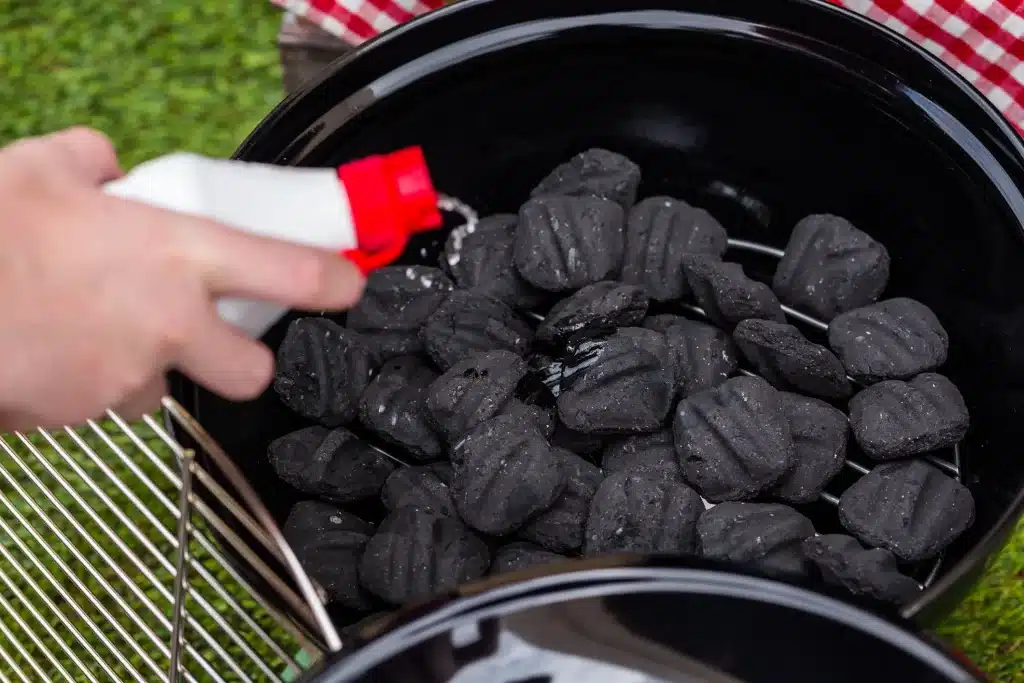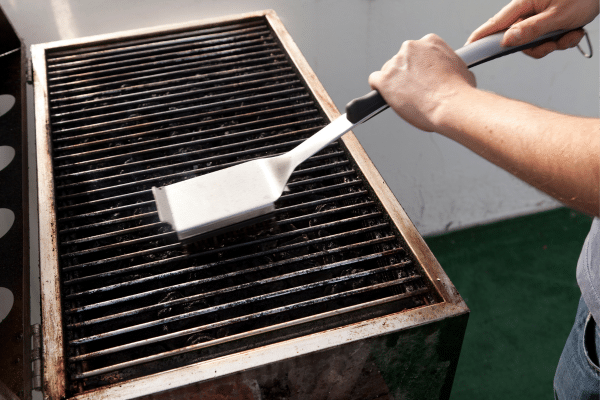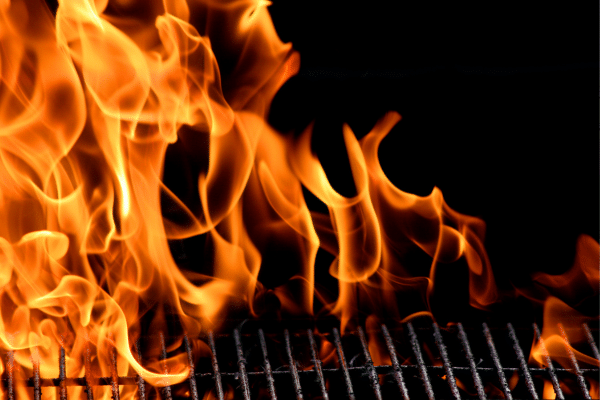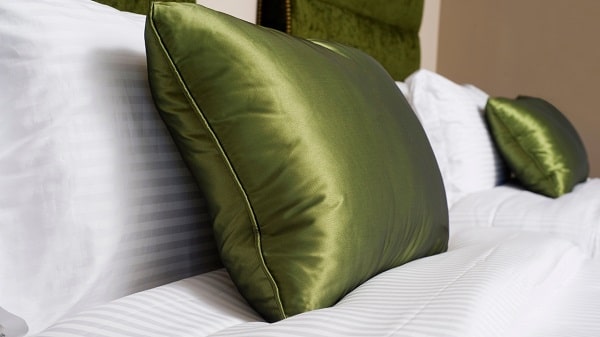Grilling is a cherished ritual for many, evoking memories of family gatherings, savory scents wafting through the air, and the undeniable joy of outdoor cooking. As with any cooking method, there are guidelines to ensure not just the best culinary results, but safety as well. While mastering the techniques for the perfect steak or veggie skewer is essential, understanding what not to do when grilling outside is equally crucial. This guide will shed light on some common mistakes and precautions that every griller should keep in mind.
Contents
Don’t Leave Your Grill Unattended

Grilling requires attention to detail and constant supervision. Just a momentary lapse can turn a delightful barbecue into a disaster. Unpredictable flare-ups, sudden grease fires, or an overturned grill are risks one might face. It’s not merely about watching the meat or vegetables as they sizzle and brown; it’s about ensuring a safe environment. Children or pets playing nearby can accidentally bump into a hot grill. Hence, always ensure someone’s keeping an eye on the grill and the surroundings.
Grilling is both an art and a responsibility. In the blink of an eye, temperatures can soar, causing food to go from perfectly seared to burnt. Additionally, if a fire were to start, having someone there to quickly react can make the difference between a minor incident and a serious catastrophe. A dedicated griller knows that tending to the grill isn’t just about the food; it’s about ensuring safety first.
Avoid Using Lighter Fluid Excessively

Lighter fluid, while a popular choice for starting charcoal grills, comes with its set of drawbacks if used inappropriately. An excessive amount can lead to sudden flash fires, posing a threat not only to the food but also to the person operating the grill. Additionally, residues from the fluid can impart a chemical taste to the food, robbing it of its natural flavors and potentially introducing harmful chemicals to your meal.
Alternatives to lighter fluid, such as chimney starters or electric igniters, offer a safer and more flavor-friendly option. These devices provide an even and controlled heat source to ignite the coals. A balanced approach ensures not only a safer grilling experience but also results in better-tasting food that’s free from chemical undertones.
Don’t Overload Your Grill

Filling every inch of the grill might seem like an efficient way to feed a crowd, but overloading can lead to numerous issues. Too much food on the grill restricts airflow, making temperature control difficult and potentially leading to uneven cooking. This can result in parts of your food being undercooked, which is especially concerning when grilling meats that require specific internal temperatures to be safe to eat.
Furthermore, overcrowded grills can become a fire hazard. Fat and juices dripping from stacked-up meats can cause unexpected flare-ups. When food is heaped together, these flare-ups can spread quickly and might be harder to control. Ensuring there’s space between items on the grill not only allows for even cooking but also provides the flexibility to move food away from sudden flames, ensuring both delicious results and a safer grilling experience.
Don’t Use A Damaged Grill

A grill showing signs of damage or wear isn’t just an aesthetic concern; it’s a potential safety hazard. From rust on the grates to cracked hoses on gas grills, every defect can lead to uneven heating, flare-ups, or worse, gas leaks. Regular maintenance checks are crucial to ensure the grill’s optimal functionality and to detect early signs of wear and tear.
Addressing issues promptly, be it replacing a worn-out grate or fixing a leak, is of utmost importance. A damaged grill might not provide the desired cooking results, and more critically, it could pose significant risks. Whether it’s for the love of the food or the safety of all involved, ensuring the grill is in prime condition before use is essential.
Don’t Forget To Clean Your Grill

A shiny, grease-free grill isn’t just pleasing to the eyes; it’s a testament to good grilling practices. Residual grease and leftover food particles can ignite and cause unexpected flare-ups, which can char the food and even pose a fire hazard. Cleaning the grill after each use ensures that the next grilling session starts on a fresh note, free from remnants of past meals.
Consistent cleaning not only prevents potential fire hazards but also extends the life of the grill. Build-ups can corrode grill components over time, leading to faster wear and tear. Plus, a clean grill offers an even cooking surface, ensuring food cooks uniformly and tastes as it should, without any lingering flavors from past grilling sessions.
Avoid Grilling In Unfavorable Weather Conditions

Mother Nature is unpredictable, and sometimes her mood swings can play havoc with grilling plans. Grilling during strong winds can be particularly risky. Gusts can blow embers, posing a fire hazard, while also making it challenging to maintain consistent temperatures. Heavy rain, on the other hand, can douse coals and affect the grill’s performance.
It’s not just about the inconvenience. Grilling in adverse conditions can be unsafe. The grill can get unstable on wet grounds, or the wind might blow smoke and sparks towards flammable objects. It’s essential to either wait for better conditions or take precautions, such as setting up wind barriers or choosing a sheltered spot away from flammable materials.
Avoid Placing The Grill Too Close To Flammable Materials

Grilling demands a safe environment, and positioning is key. When placed near flammable materials like wooden structures, curtains, or even certain plants, there’s a heightened risk of accidental fires. Embers can fly or sparks can ignite, setting these materials alight and causing rapid fire spread.
Ensuring a safe distance between the grill and potential fire hazards is paramount. A good rule of thumb is to keep the grill at least 10 feet away from any structure or flammable items. This not only offers a safer grilling experience but also provides ample space to move around and manage the grill without hindrances.
The Bottom Line
Grilling is a delightful experience, combining the thrill of outdoor cooking with the flavors only a grill can impart. Yet, as with any activity involving fire and raw food, precautions are essential. By sidestepping common mistakes and prioritizing safety—both of the equipment and the food—anyone can ensure that grilling remains a joyous and incident-free affair. Here’s to many more sizzling summers and perfectly grilled delicacies, enjoyed in the safest manner possible.



